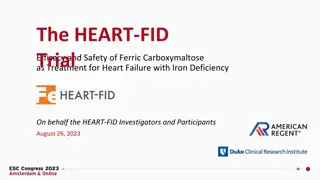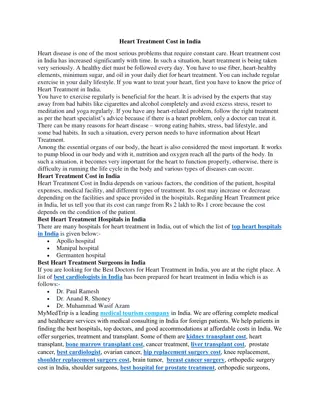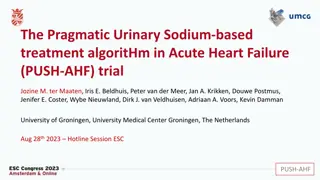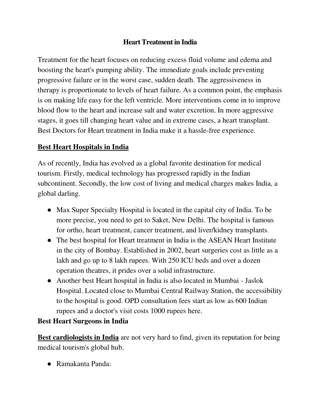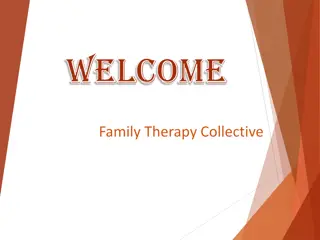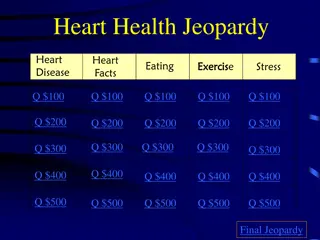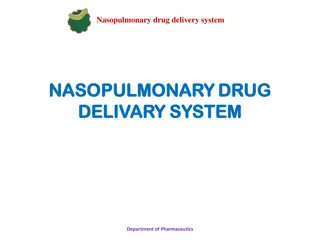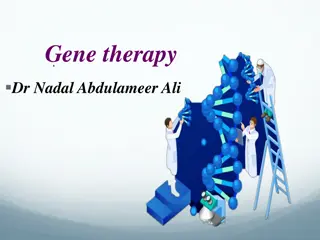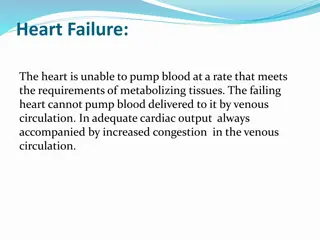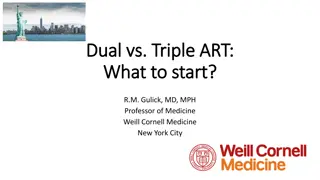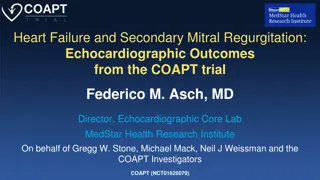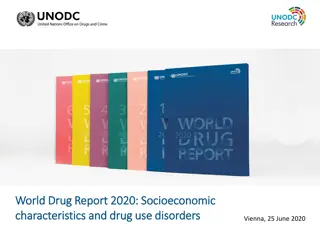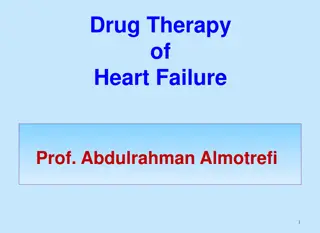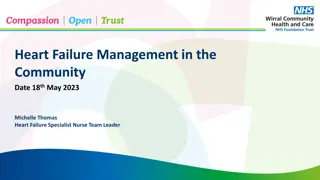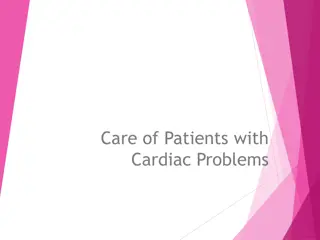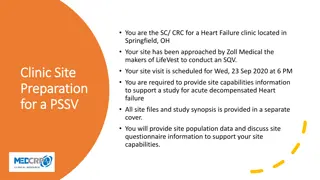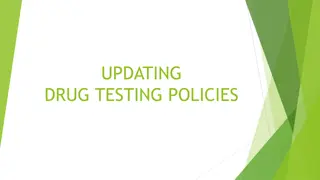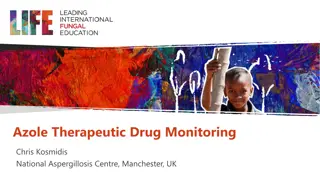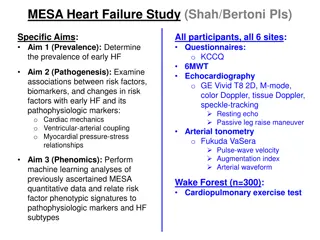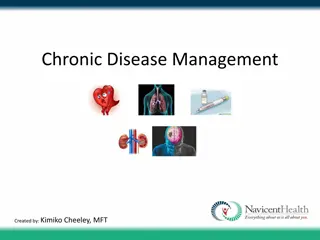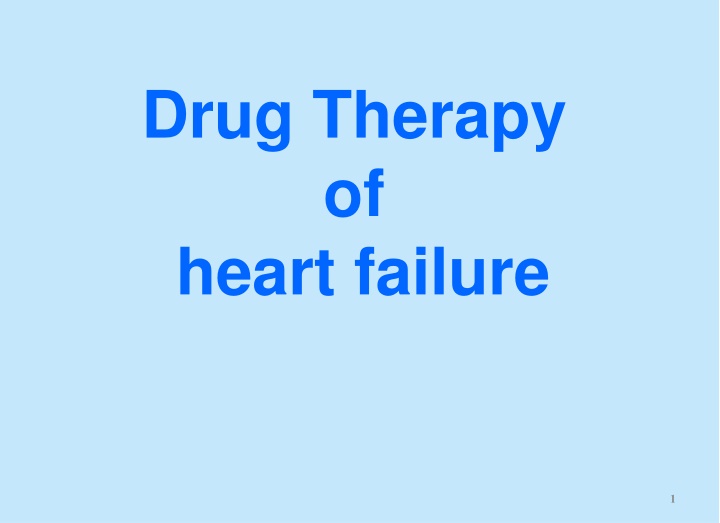
Drug Therapy for Heart Failure: Mechanisms and Effects
Explore the classes of drugs used in treating acute and chronic heart failure, their mechanisms of action, pharmacological effects, clinical uses, adverse effects, and interactions with other drugs. Learn about the causes, symptoms, and factors affecting cardiac output in heart failure, as well as the different drugs used to increase contractility or decrease preload in managing this condition.
Download Presentation

Please find below an Image/Link to download the presentation.
The content on the website is provided AS IS for your information and personal use only. It may not be sold, licensed, or shared on other websites without obtaining consent from the author. If you encounter any issues during the download, it is possible that the publisher has removed the file from their server.
You are allowed to download the files provided on this website for personal or commercial use, subject to the condition that they are used lawfully. All files are the property of their respective owners.
The content on the website is provided AS IS for your information and personal use only. It may not be sold, licensed, or shared on other websites without obtaining consent from the author.
E N D
Presentation Transcript
Drug Therapy of heart failure 1
Prof. Abdulrahman Almotrefi Prof. Azza El-Medani
Learning objectives By the end of this lecture, students should be able to: - Describe the different classes of drugs used for treatment of acute & chronic heart failure and their mechanism of action - Understand their pharmacological effects, clinical uses, adverse effects and their interactions with other drugs.
HEART FAILURE HEART FAILURE ? Inability of the heart to maintain an adequate cardiac output to meet the metabolic demands of the body.
CAUSES OF HEART FAILURE CAUSES OF HEART FAILURE
Heart failure symptoms - Tachycardia - Decreased exercise tolerance (rapid fatigue) - Dyspnea ( pulmonary congestion) - Peripheral edema - Cardiomegaly 6
Force of contraction Low C.O. Carotid sinus firing Activate sympathetic system Sympathetic discharge Activate renin-angiotensin- Aldosterone system Remodeling Salt & Water Retention Volume expansion Vasoconstriction Venous VC Force of Cardiac .cont. HR . Arterial VC Preload Preload After load C.O. Via compensation Pathophysiology of CHF
Factors affecting cardiac output and Heart Failure 1- Cardiac contractility 2- Preload 3- Afterload 4- Heart rate 9
Drugs used in the treatment of heart failure - Drugs that increase contractility 1- Cardiac glycosides 2- Phosphodiesterase inhibitors 3- - adrenoceptor agonists 10
- Drugs that decrease preload 1- Diuretics 2- Venodilators 11
- Drugs that decrease afterload arteriodilators 12
- Drugs that decrease preload and afterload Combined arteriolo- and venodilators: 1- Angiotensin converting enzyme (ACE) inhibitors 2- Angiotensin receptor antagonists 3- 1-adrenoceptor antagonists 4- Direct vasodilators 13
CARDIAC GLYCOSIDES Digoxin / Digitoxin / Ouabain Digitalis Lanata
CARDIAC GLYCOSIDES Mechanism of action - Inhibit Na+ / K+ ATPase enzyme 15
CARDIAC GLYCOSIDES PHARMACOLOGICAL ACTIONS: 1- Increase the force of myocardial contraction (+ve inotropic) leading to decrease in: heart size , venous pressure and edema 2- Slow heart rate ( -ve chronotropic ) by vagal stimulation
CARDIAC GLYCOSIDES Therapeutic uses: - Congestive heart failure - Atrial arrhythmias: - Atrial flutter - Atrial fibrillation - Supraventricular tachycardia 18
CARDIAC GLYCOSIDES PHARMACOKINETICS OF DIGOXIN: - has narrow therapeutic index - oral absorption: 40-80% leading to variable bioavailability - I.V. acts within 15 min-3hrs - 25% protein bound - 85% is excreted unchanged in the urine 19
CARDIAC GLYCOSIDES Cardiac adverse effects : - digitalis-induced arrhythmias can cause any type of arrhythmia especially: - extrasystoles - coupled beats (Bigeminal rhythms ) - ventricular tachycardia or fibrillation - A.V.block, - cardiac arrest. 20
CARDIAC GLYCOSIDES Extra cardiac adverse effects : - GIT : common ( the earliest signs of toxicity ): Anorexia ,nausea, vomiting, diarrhea CNS: Headache, visual disturbances, drowsiness 23
CARDIAC GLYCOSIDES Factors that increase digitalis toxicity: - Small Lean body mass - Renal diseases - Hypothyroidism - Hypokalemia - Hypomagnesemia - Hypercalemia 24
Treatment OF ADVERSE EFFECTS Treatment OF ADVERSE EFFECTS HEART CNS Vision GIT ??? Atropine Antiarrythmics K supplements FAB fragment Digoxin , diuretic
-Adrenoceptor agonists Dobutamine : - Selective 1 agonist - Uses : Treatment of acute heart failure in cardiogenic shock 26
Phosphodiesterase Inhibitors Bipyridines :e.g. Amrinone and Milrinone Mechanism of action: Inhibit phosphodiesterase isozyme 3 in cardiac & smooth muscles : cAMP which cause : - Increase myocardial contraction - Dilatation of both arteries & veins ( causing reduction of both preload & afterload ) 27
Phosphodiesterase Inhibitors Therapeutic uses: - Used only intravenously for management of acute heart failure 28
Phosphodiesterase Inhibitors Adverse effects: - Nausea ,vomiting - Arrhythmias ( less than digitalis ) - Thrombocytopenia - Liver toxicity ( Milrinone has less hepatotoxic and less bone marrow depression than amrinone ) 29
- Drugs that decrease preload 1- Diuretics 2- Venodilators 30
Diuretics - first-line agents in heart failure therapy. - used to treat the signs and symptoms of volume overload ( pulmonary and/ or peripheral edema ) - Act by reducing salt and water retention ventricular preload and venous pressure. - This effect helps in reduction of cardiac size which improves cardiac performance 31
Diuretics - Hydrochlorothiazide used in mild congestive heart failure - Spironolactone - a potassium sparing diuretic used in congestive heart failure 32
Diuretics - Furosemide a potent diuretic used for immediate reduction of the pulmonary congestion & severe edema associated with : - acute heart failure - moderate & severe chronic failure 33
Venodilators - Nitroglycerine - used I.V. for severe heart failure when the main symptom is dyspnea due to pulmonary congestion. - dilates venous blood vessels and reduce preload. 34
Reduction of Afterload Arteriodilators Hydralazine: - used when the main symptom is rapid fatigue due to low cardiac output. - Reduce peripheral vascular resistance 35
Reduction of preload and afterload ACE Inhibitors & Angiotensin Receptor Blockers - Along diuretics are now considered as first-line drugs for heart failure therapy 36
Angiotensin converting enzyme inhibitors MECHANISM OF ACTION VASOCONSTRICTION VASODILATATION ALDOSTERONE VASOPRESSIN SYMPATHETIC Angiotensinogen RENIN BRADYKININ Angiotensin I A.C.E. Inhibitor ACTIVATION ANGIOTENSIN II
ACEInhibitors Pharmacokinetics - Captopril, enalapril and ramipril All are rapidly absorbed from GIT after oral administration. - Food reduce their bioavailability. - Enalapril , ramipril are prodrugs, converted to their active metabolites in the liver - Have a long half-life & given once daily - Enalaprilat is the active metabolite of enalapril given i.v. in hypertensive emergency. 38
Angiotensin receptor blockers Mechanism of action - block AT1 receptors - decrease action of angiotensin II Examples : Losartan, Valsartan, Irbesartan 39
Effects of ACE Inhibitors & Angiotensin Receptor Blockers Peripheral resistance ( Afterload ) Venous return ( Preload) sympathetic activity remodeling ( cardiac & vascular) mortality rate 40
-ADRENOCEPTOR BLOCKERS Prazosin - block - receptors in arterioles and venueles - reduce blood pressure by decreasing both afterload & preload which help heart faiulure patients 41
Direct acting vasodilators Sodium nitroprusside - given I.V. in acute or severe refractory heart failure, acts immediately and effects lasts for 1-5 minutes. 42
-Adrenoceptor Antagonists used in heart failure - Second generation: cardioselective ( 1 receptors) e.g. Bisoprolol, Metoprolol - Third generation: have vasodilator actions ( blocking effect) e.g. carvedilol 43
-Adrenoceptor Antagonists used in heart failure (cont ) - reduce the progression of chronic heart failure. - not used in acute heart failure ( may precipitate acute decompensation of cardiac function) 44
-Adrenoceptor Antagonists used in heart failure Mechanism of action - Reduce remodeling through inhibition of the mitogenic activity of catecholamines - Reduce mortality in patients with hypertrophic cardiomyopathy - Decrease heart rate - Decrease renin release 45
Management of chronic heart failure Reduce work load of the heart - Limits patient activity - Reduce weight - Control hypertension Restrict sodium Diuretics 46
Management of chronic heart failure (cont .) ACEI or ARBs Digitalis - blockers Direct vasodilators 47
Management of acute heart failure - Volume replacement - Diuretics - Positive inotropic drugs - Vasodilators - Antiarrhythmic drugs - Treatment of myocardial infarction 48

